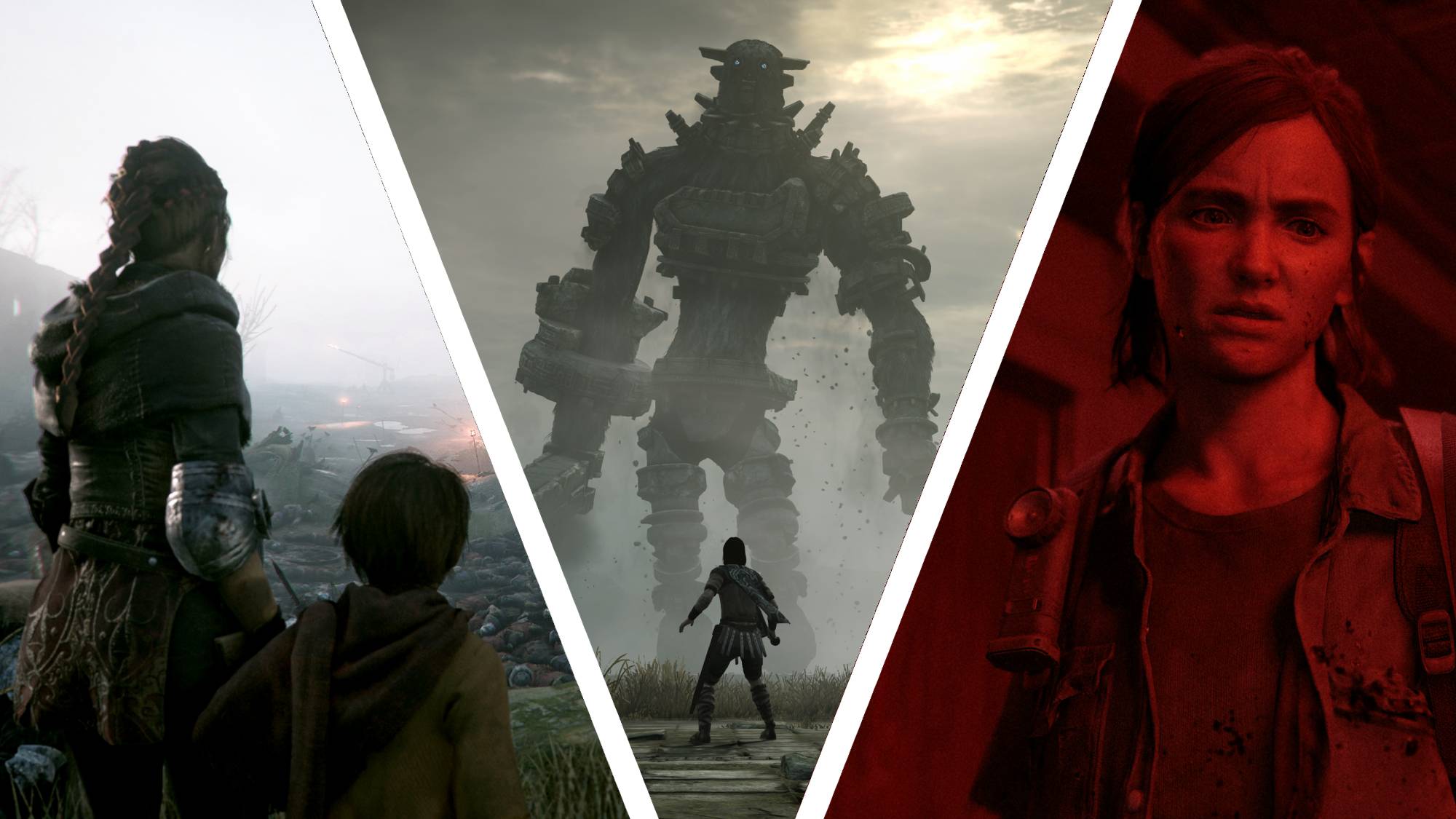
Yes, you read that title right. I am here to reveal some brilliant but bleak, magnificent but melancholy, stunning but sad, and divine but depressing video games.
It’s a strange niche to inhabit, but I love these kinds of games, and have realised in the past five years or so that a bunch of my favorites fit perfectly into this category – and they’re often brilliant because of that, not despite it.
I think a lot of my fascination comes from the fact that sadness and melancholy are the kinds of emotions that games can really tap into, encouraging the player to immerse themselves by living out these emotions through stories, characters, worlds, and atmospheres. I welcome that immersion, and the feeling in touch with my own emotions that these games can evoke.
Now, before you say “this guy must be fun at parties,” I’m not going to intentionally turn this article on incredible video games into some form of video game-shaped therapy – but it may seem like it at times as we go. This might not be the happiest of places for the next few minutes – but still a deeply interesting and gripping one.
And remember, these are just some of my favorites - let me know some of yours in the comment section.
The Last of Us Part 2
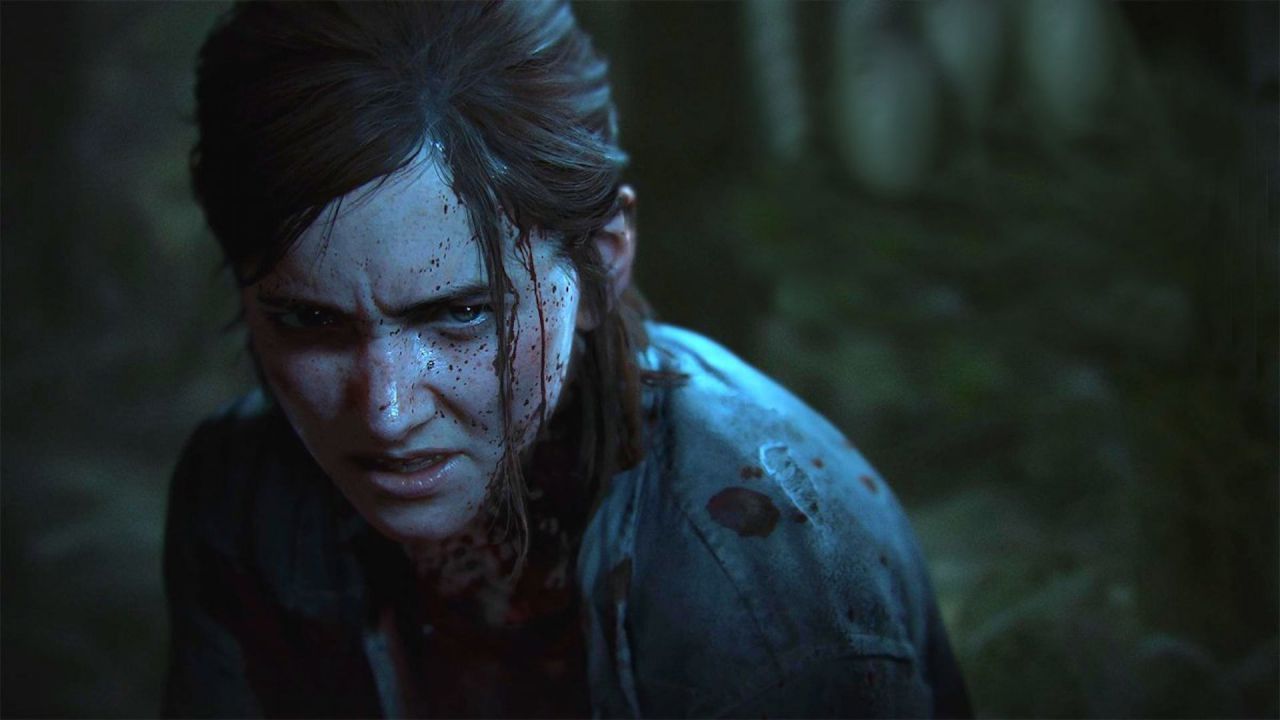
Not a surprising first hit on this list, perhaps, but it’s one of my all-time favorite games from one of my all-time favorite series.
Ellie and Abby’s combined tale of endless violence, revenge, and cyclical darkness – complete with PTSD and torture in a world of relentless danger and doom – is gripping, intense, and, yes, downright bleak and miserable. But it works, and the story is so powerful for it.
Sign up for breaking news, reviews, opinion, top tech deals, and more.
I can see The Last of Us Part 2's misery so clearly in my mind's eye when I think of it; I can replay the emotional cutscenes and angry quotes; perfectly visualise heart wrenching scenes when I hear music from the game; and I have relived its atmosphere, over and over again since it was released in 2020.
Couched in a landscape of dilapidated, crumbling buildings and torn up lands and with a climate of relentless rain and dark clouds, the bleak experience is all-encompassing. And what an absorbing, gripping one it is, pulling you on to every next moment and narrative beat with great intensity.
Senua’s Saga: Hellblade 2
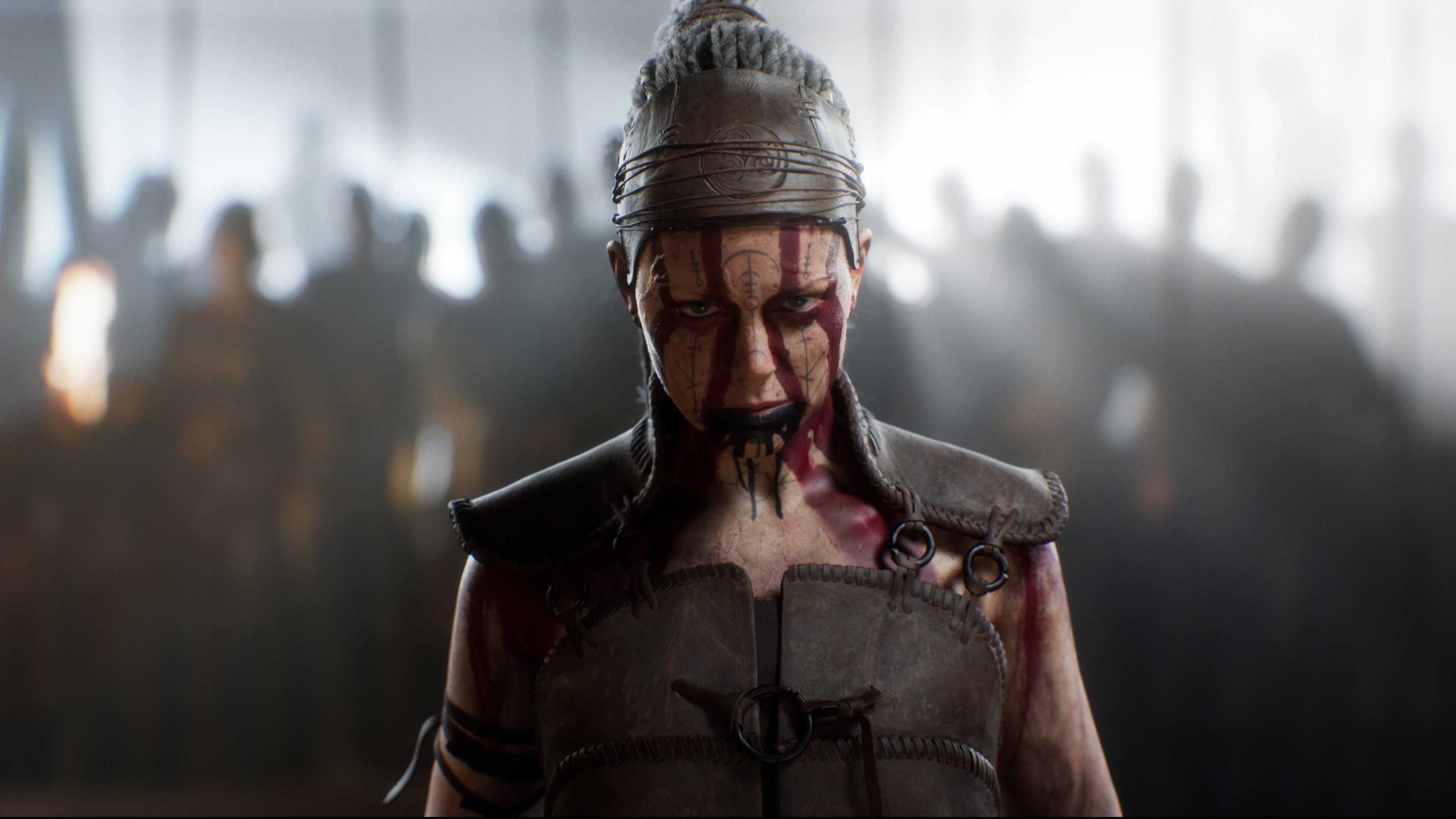
If it wasn’t already a contender for such a list, the recently released Senua’s Saga: Hellblade 2 Enhanced release of the game settles it; this is one of my absolutely favorite games of this generation – and it’s grim as anything.
Exploring the depths of complex mental health conditions is a deeply compelling and interesting premise, and Senua’s experience with it (building upon the excellence of the first game) makes for a deeply gripping, dark, and brooding journey across Iceland’s barren lands.
Not only is it Senua’s own past, experiences, and mind that transports directly into her bleak boots and misery, but there is a host of stories within Hellblade 2's narrative that are beautifully tragic, too.
The giants and their origins, from the tale of a desperate mother abandoning her child to mythical beings, to a good man who suffers the pain and consequences of betraying a friend; these stories are beautifully sorrowful, and pull you further into the shadowy and oppressive world of Dark Ages Iceland and Senua’s journey.
A Plague Tale: Innocence
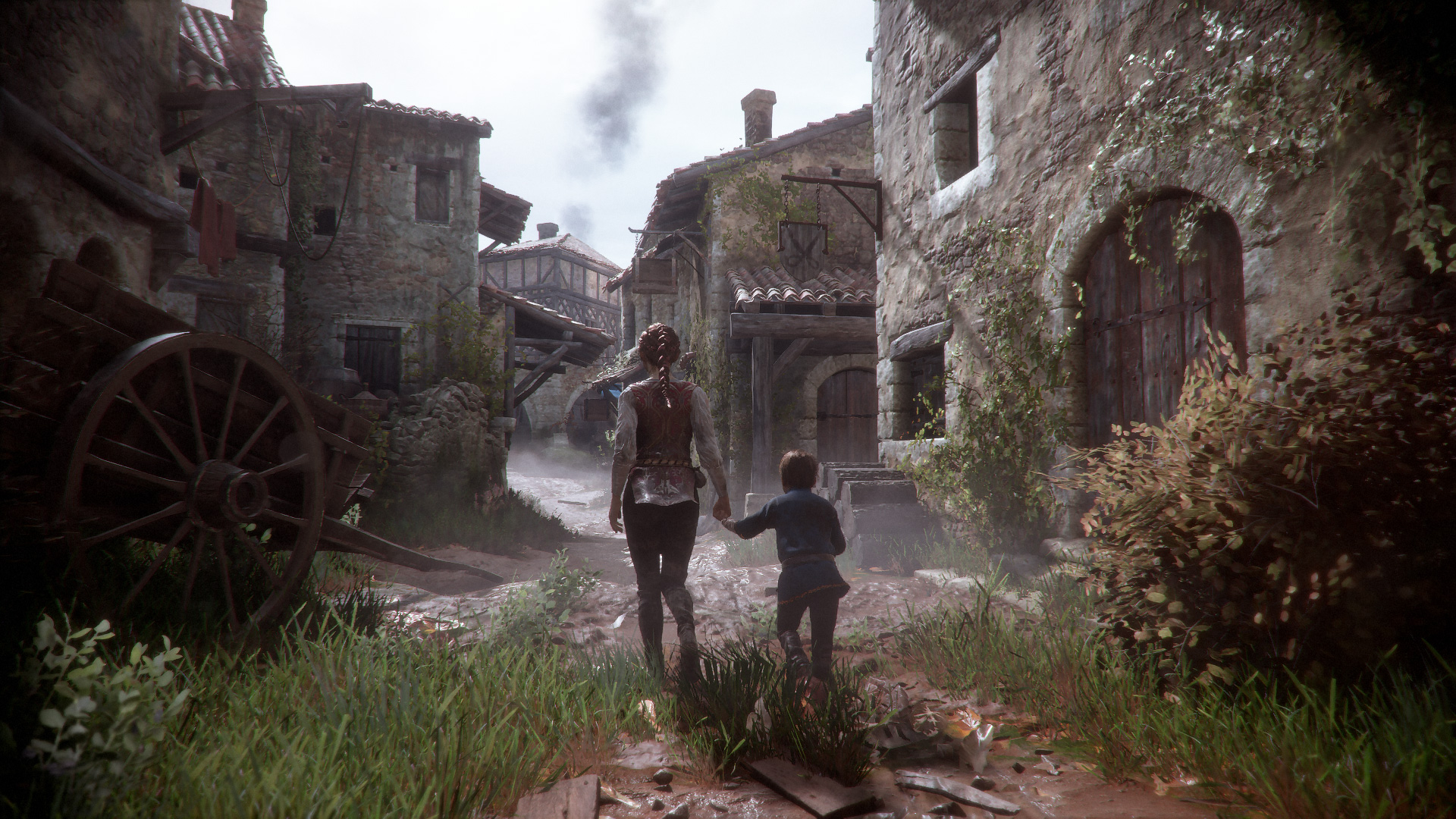
Spoilers, but you know you could be in for a bleak time when the opening section of a game has a pet dog die.
And that’s exactly what Innocence does, setting a tragic tone for the rest of the game. Playing as a child in Amicia de Rune, you and your younger brother have to travel 14th-century France in one of the darkest periods of history while fighting for survival against soldiers, rats, and the plague.
The latter two’s prominence across the game’s environments and landscapes emphasizes the deep struggle, and every time you remember that Amicia is only 15 years old, you get a stark reminder of how bleak this game is and the experiences she is having to go through.
Littered with dead bodies, angry soldiers, and millions of rats, environments where blood literally runs down the streets, and moments where you have to clamber through bloody messes under buildings and across battlefields mean there’s not much to feel cheery about here.
Throw in the fact that Amicia can turn dark with some bleak actions of her own – like using soldiers as bait or taking out light sources to see them overrun by ravenous rats, and the depths of depravity are plundered further by your own direct input.
Shadow of the Colossus
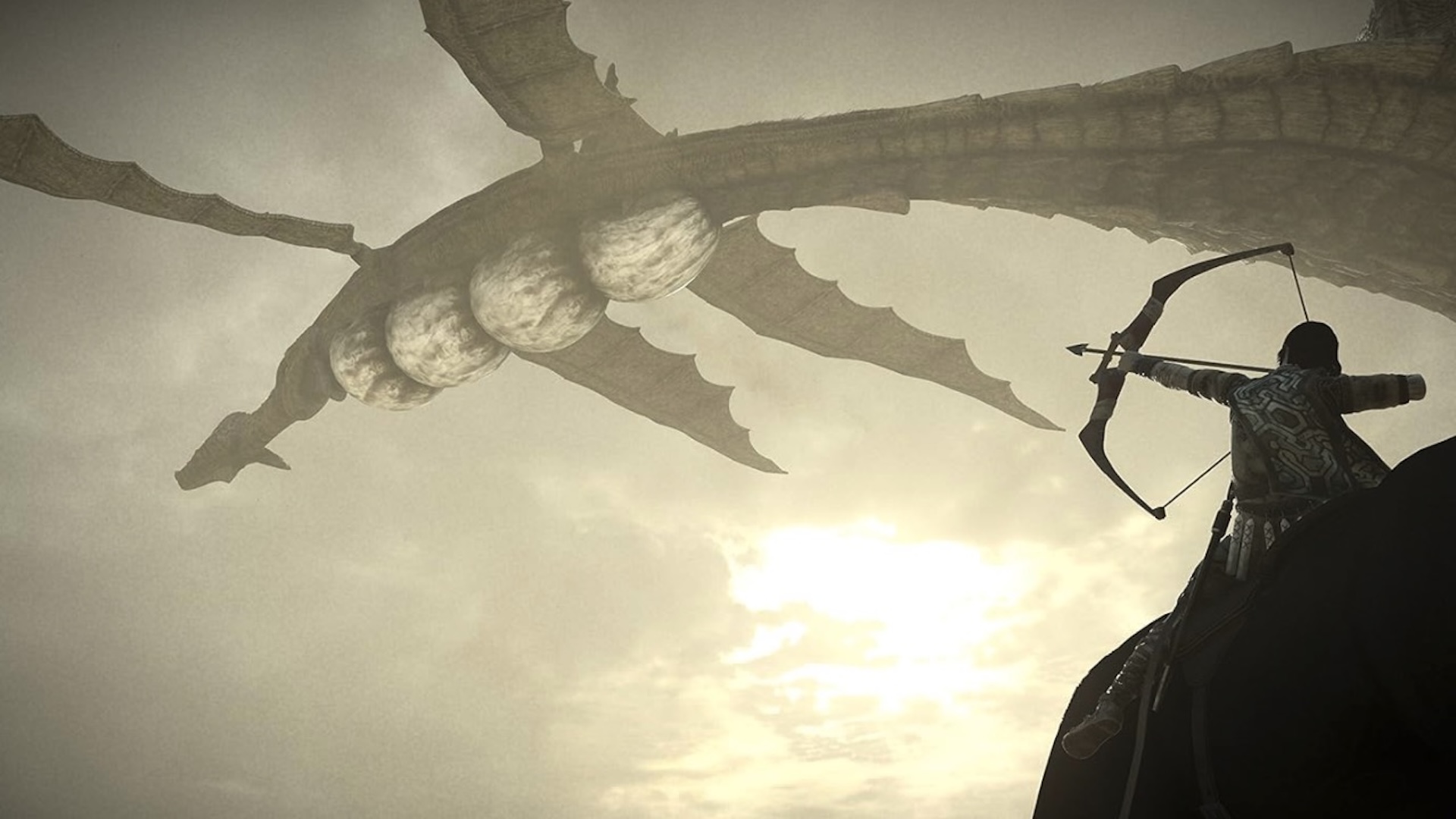
Perhaps more melancholy and lonely than bleak or depressing, Shadow of the Colossus and its solo adventurer’s journey has stayed with me for a long time.
Its landscape and atmosphere are what I’d call mournful rather than bleak, in a way; there’s life in the landscape, and sunshine too. But it’s totally empty and devoid of anything apart from you, your horse, and barren – albeit beautiful – space between you and the colossi.
This mournful undertones perfectly mirror the meta-narrative and concept of the game’s colossi encounters, too: each one is a little morally ambiguous, lamenting music rings out after each battle, and after all colossi are defeated, there’s still a tragic ending to deal with, too.
It’s a sad game filled with sorrowfulness, yes; though its beauty and time to think as you cross the landscape alleviate it a little for some. For others, like me, it all works together to make for a haunting, beautiful adventure that tugs at the melancholy within.
Hell is Us
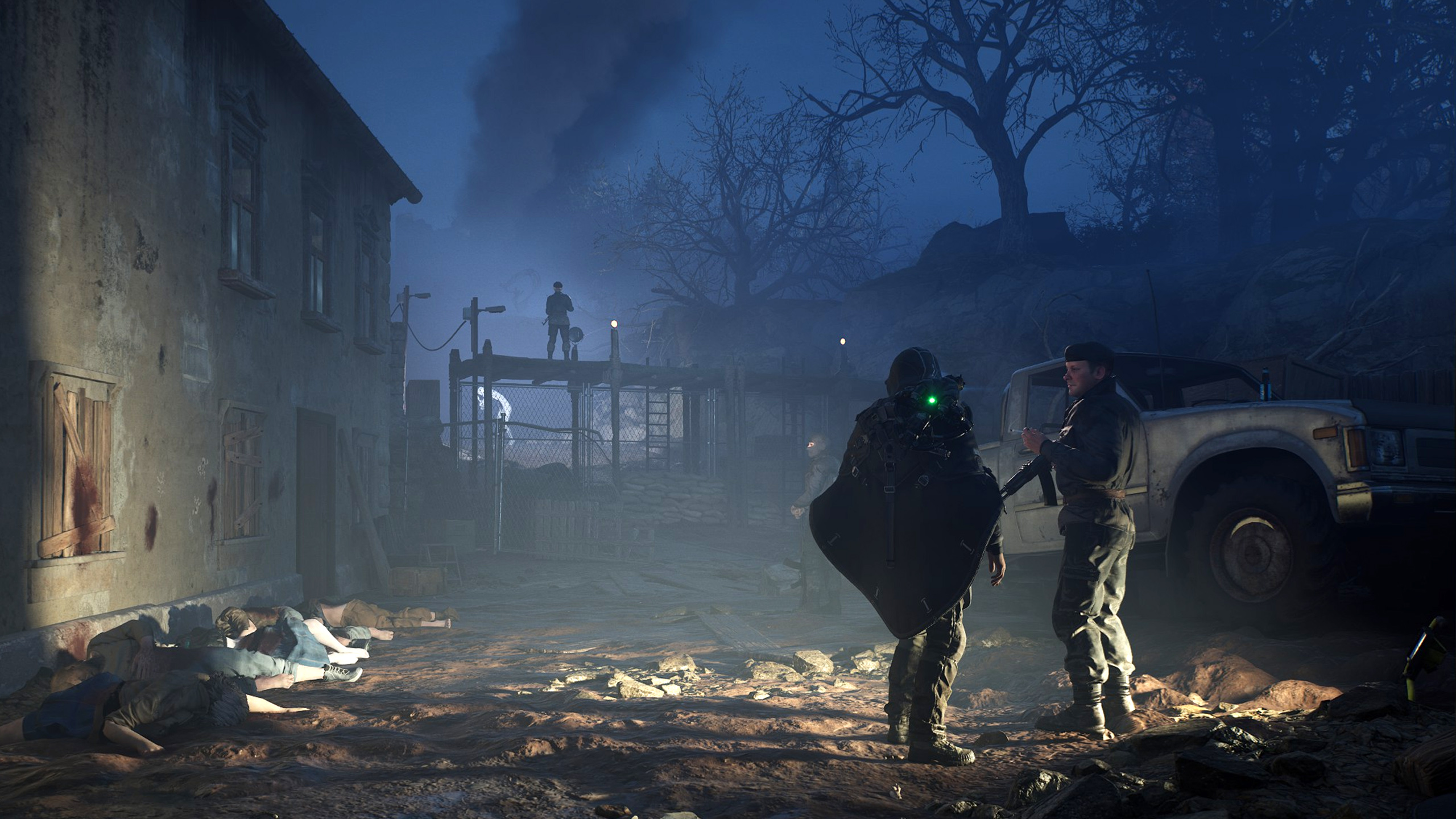
I’ve only played a tiny bit of Hell is Us as of the time of writing this, but I can already see what reviewer Christian Gutyon meant when he described the game’s world as “bleak but fantastically realized” and that the “the world you inhabit feels dark and dangerous, poised to collapse into unmitigated chaos at any moment, with only small glimmers of hope left.”
The despair and bleakness of Hell is Us – in what I’ve experienced so far, at least – is two-fold. First, there are the often deeply miserable tales and circumstances you stumble across in the world: abandoned people hiding for days in dungeons, the grim remnants of a terrible civil war and the crimes against humanity it brought, and even death by your own actions if you fail to bring medicine back to someone in time, for example.
The second part of the bleakness is in the very feel of the landscape itself. Also scarred by the civil war, the land is torn deeply; ruins abound, and it feels like the end of days at times.
Plus, some delightful pathetic fallacy as the land is pounded by wretched weather, too, with relentless rain and mud adding to the overall gray and grim tones. The pain and bleakness can be felt in the very land itself, almost.
Metro 2033
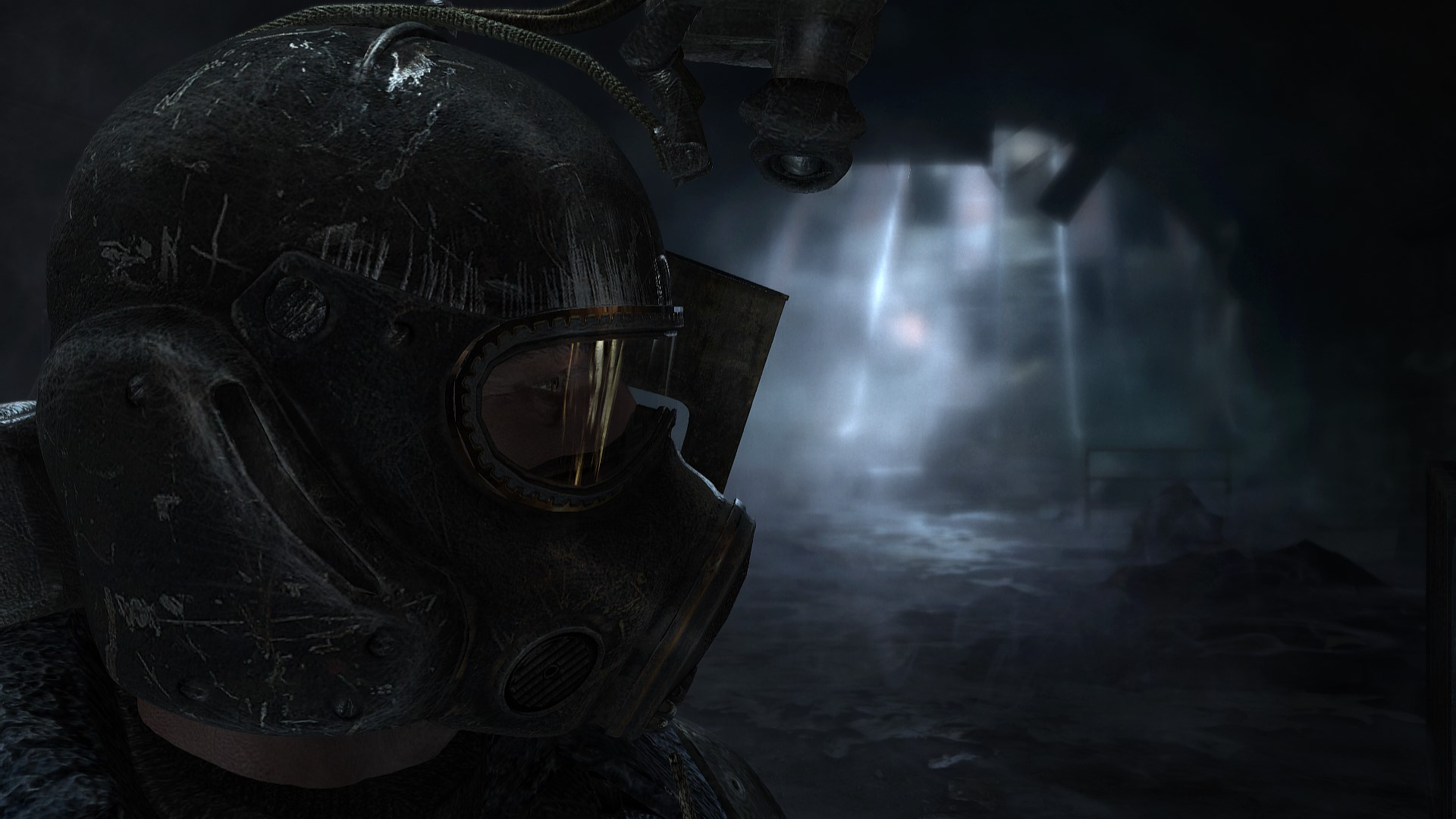
The Metro games have long stayed with me for their ability to evoke such a strong sense of place in a post-apocalyptic world. A man-made apocalypse, at that, too, which itself only heightens the prevalent sense of darkness and futility that humans are destined to ruin the world.
After a violent ending to said world, the game perfectly portrays what’s left behind. The world is filled with danger and oppression, and even the air wants to kill you when you get brief moments on the outside.
With the majority of Metro 2033 taking place in the Moscow subway system, though, the atmosphere is deeply claustrophobic and dark, with barely any flashes of light or hope. While you do get some human contact, thankfully, life in the tunnels is grim, with people living in dank and dark conditions and barely having enough food to make it by.
There’s dread, terrible human factions, and monsters around every turn, and even the scarcity of resources and supplies amplifies the bleakness of your situation. However, wherever you go, it’s this very atmosphere that brings you back to the adventure and its sense of place, desperation, and destruction.
Dead Space
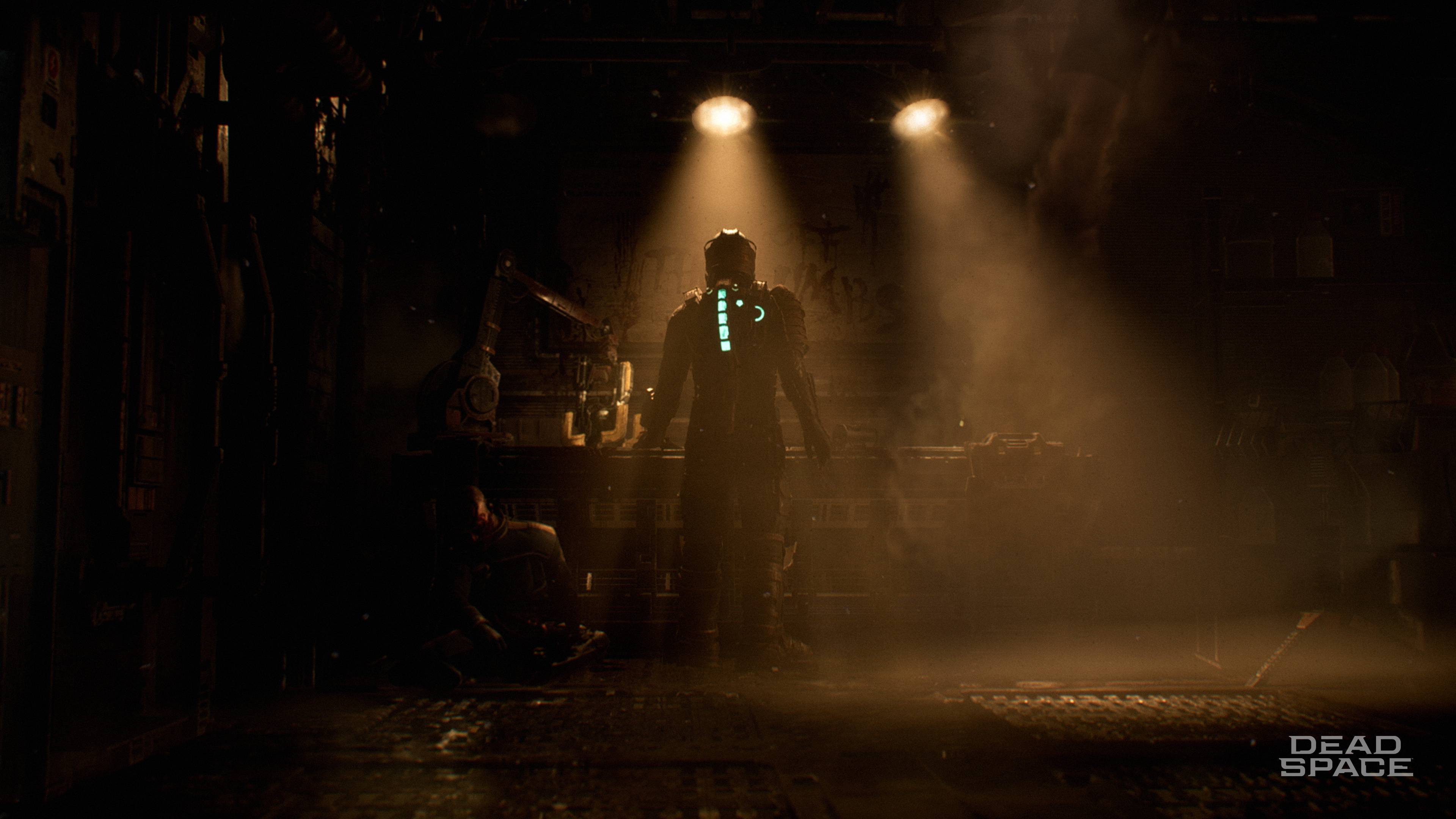
While Isaac’s journey through the Ishimura dangles hope just before your eyes, moment to moment, it’s challenging, void of light, and deeply, darkly atmospheric.
Every turn and corner in Dead Space could be Isaac’s last due to the terror that has befallen the crew members, with monsters out to gut Isaac. Plus, there’s also next to no human contact or sightings throughout, which makes it feel like all hope is lost on board the USG Ishimura.
It plunges you into literal darkness at times, which definitely helps it feel atmospherically oppressive, but it’s not just the blindness that makes the Ishimura feel so bleak; it’s the way that darkness moves around the ship and the scarce light sources that really enhance the feel of the place.
Having only the deep void of space beyond the windows reminds you further of Isaac’s isolation, insignificance, and the futility of his efforts, only deepening the bleakness further.
Dear Esther
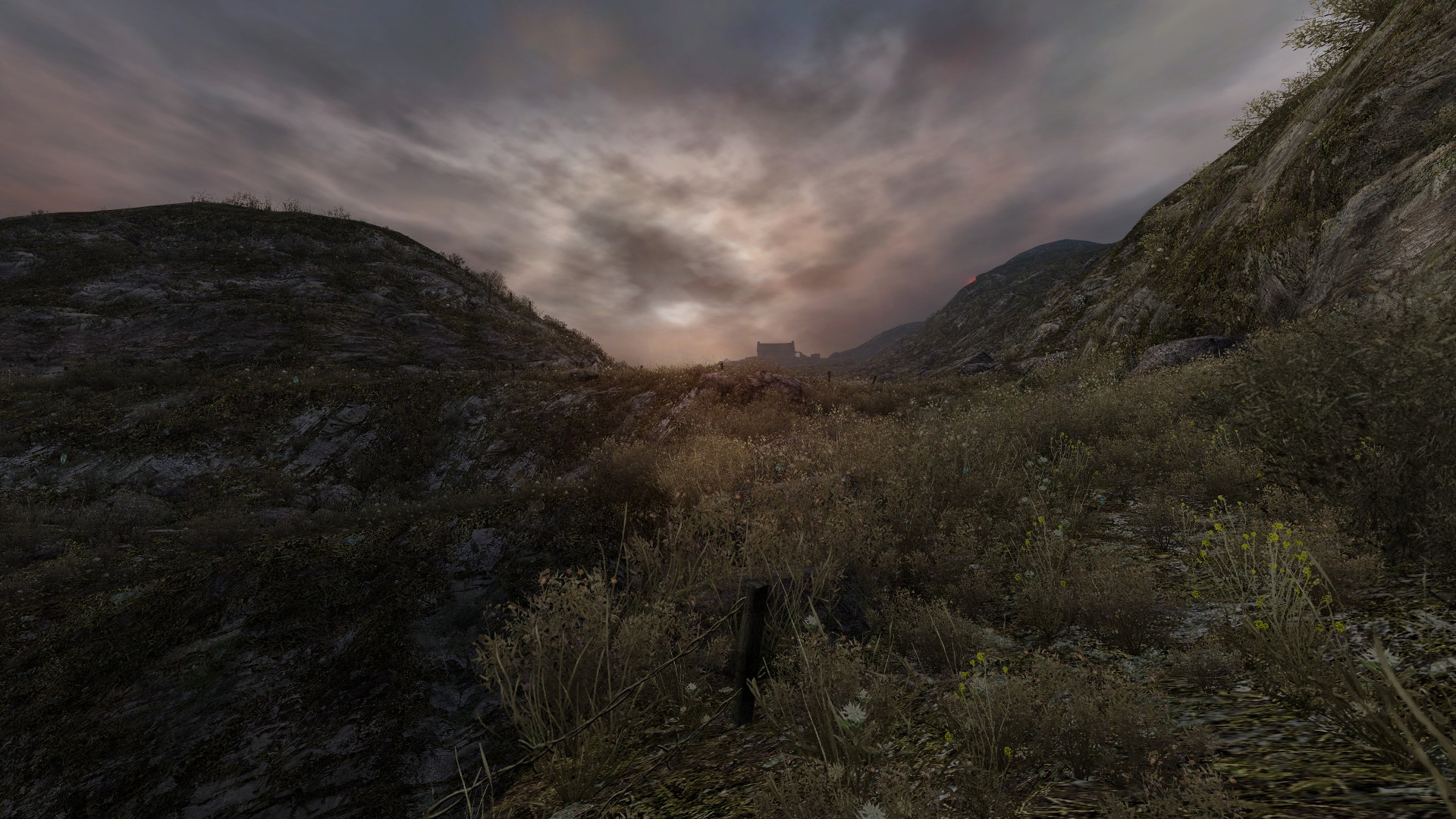
It wouldn’t be a bleak video game list without Dear Esther. This is an extraordinarily interesting game, and one that isn’t action or gameplay-focused at all. It’s a slow and steady but deeply atmospheric trek across a Hebridean island, and is one of the most interesting glum games I’ve played.
The setting of the haunted, barren, and wind-carved landscape is the perfect place for a sombre story, and the sadness in the story combines with the environment beautifully to acutely encapsulate tragedy and desperation.
The slow pace also immerses you further in the game, meaning you soak up all its melancholy and have plenty of time to dwell and ruminate on what you find and see, but also what it all means in the end.
And there you have it: a smattering of my favorite bleak, miserable, and immersive and atmospheric games.
You might also like...
- Dying Light: The Beast dials up the horror and keeps the parkouring, zombie-bashing action – and it's a blast
- This overlooked gaming accessory has taken my PS5 and PC gaming experience to brand new levels
- Forget gaming headsets, the best audiophile headphones for gaming are where it’s at if you want the best audio – here are 5 of our favorites

Rob is the Managing Editor of TechRadar Gaming, a video games journalist, critic, editor, and writer, and has years of experience gained from multiple publications. Prior to being TechRadar Gaming's Managing Editor, he was TRG's Deputy Editor, and a longstanding member of GamesRadar+, being the Commissioning Editor for Hardware there for years, while also squeezing in a short stint as Gaming Editor at WePC just before joining TechRadar Gaming. He is also a writer on tech, gaming hardware, and video games but also gardens and landscapes, and has written about the virtual landscapes of games for years.
You must confirm your public display name before commenting
Please logout and then login again, you will then be prompted to enter your display name.